|
This week comes news that Python is TIOBE Language of the Year for the sixth time. With a new logo proposed for Perl, we look at what happened to it in 2024. We report on new releases for Ruby and Flutter and look back on 50 years of the Intel 8080 microprocessor. Our book extract from Extending & Embedding Python Using C gives instructions on setting up a Windows toolchain.
To receive this digest automatically by email, sign up for our weekly newsletter.

January 2 - 8, 2025
Featured Articles
|
Extending & Embedding Python Using C - A Module Using Windows
08 Jan | Mike James
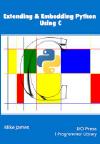
Getting started with extending Python is difficult because of the need to set everything up correctly. Not if you follow our instructions for the Windows toolchain. This is an extract from the new book by Mike James that helps you combine the speed and power of C with the versatility and ease-of-programming of Python.
<ASIN:B0CK71TQ17>
|
Quick Median
02 Jan | Mike James

You have probably heard of Quicksort, but what about Quick Median? This is another of the many partitioning algorithms that work in clever ways to do things faster. Quick Median is a useful and instructive algorithm and was invented by C.A.R. Hoare who also invented the Quicksort.
|
|
Programming News and Views
|
O'Reilly Data Reveals Surge In AI Learning
08 Jan | Sue Gee
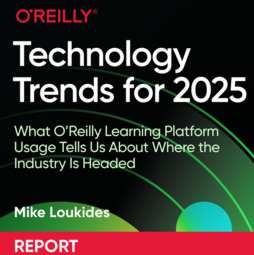
The O'Reilly Technology Trends for 2025 Report is based on annual usage data from O’Reilly’s online learning platform data. It reveals a "dynamic landscape of developer learning", with AI technologies driving the most significant shifts.
|
The IProgrammer Perl 2024 Review
08 Jan | Nikos Vaggalis
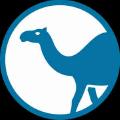
We recap the main events that happened throughout 2024 in the Perl world as explored by IProgrammer.
|
database.build - In Browser Postgres Sandbox With AI Assistance
07 Jan | Nikos Vaggalis

Courtesy of Supabase, database.build lets you run Postgres inside your browser local-first and ask questions on your data in natural language.
|
Tabnine Adds Code Provenance And Attribution Checks
07 Jan | Kay Ewbank
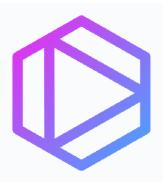
Tabnine has added a feature intended to reduce the risk of IP infringement. The new Provenance and Attribution feature checks that code suggested by AI code assistants doesn't use code with copyright restrictions.
|
Python Is TIOBE Index Language Of The Year 2024
06 Jan | Mike James

This news was widely anticipated and, as it's the sixth time Python has won this accolade, it might even be attracting some yawns. However, you would be wrong to view Python as boring. When you delve into it there's a lot to discover. <ASIN:1871962749>
|
Ruby 3.4 Improves YJIT
06 Jan | Kay Ewbank

Ruby 3.4 has been released. This version uses the Prism parser as the default, adds an "it" block parameter reference and brings Happy Eyeballs Version 2 support to the socket library.
|
50 Years Of the Intel 8080
05 Jan | Harry Fairhead
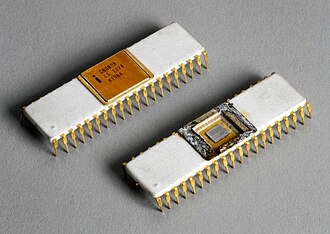
The Intel 8080 was the very first multi-purpose microprocessor and as such played a pivotal role in the evolution of personal computing. 2024 was the 50th anniversary of the chip that influenced the development of the x86 architecture.
|
Flutter 3.27 Improves Cupertino Widgets
03 Jan | Kay Ewbank

Flutter 3.27 has been released with updates to the framework, engine, and ecosystem, including progress with Impeller and improvements to Cupertino widgets. The new version also has new features in DevTools.
|
Explore Programming Idioms
03 Jan | Nikos Vaggalis

Introducing a web collection of programming idioms in a variety of languages. How useful is that?
|
OpenAI Releases New Dev Tools
02 Jan | Kay Ewbank
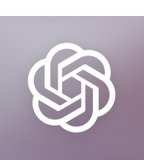
OpenAI has released a new more capable AI model along with new tools for customization and beta versions of Go and Java SDKs.
|
DuckDB + Webassembly = WhatTheDuck
02 Jan | Nikos Vaggalis

Run DuckDB inside your browser thanks to Webassembly. When is that useful?
|
|
Books of the Week
If you want to purchase, or to know more about, any of the titles listed below from Amazon, click on the book jackets at the top of the right sidebar. If you do make Amazon purchases after this, we may earn a few cents through the Amazon Associates program which is a small source of revenue that helps us to continue posting.
|
Full Review
|
The Reign of Botnets (Wiley)
Author: David Sénécal
Publisher: Wiley
Date: July 2024
Pages: 356
ISBN: 978-1394262410
Audience: General
Rating: 5
Reviewer: Kay Ewbank
This book is subtitled 'Defending against Abuses, Bots and Fraud on the Internet', which is a big and important topic.
<ASIN:B0D1CJR212>
|
Book Watch
|
Programming in Ada 2022 (Cambridge University Press)
This book, the latest edition of a book that has established itself as the definitive references for successive versions of Ada, covers the full details of the core language Ada 2022 as approved by ISO in 2023, including new features that aid program proof and the efficient use of multicore architectures. John Barnes a founder member of the Ada design team, begins with the key ideas to the newcomer. The algorithmic features, structural features such as OOP and multitasking, and details of the standard library and interaction with the external environment are all covered in subsequent parts.
<ASIN:B0DNTF3WFW >
|
R by Example, 2nd Ed (Springer)
Exhorting "Use R!" on the cover, this book is an example-based introduction to the statistical computing environment that does not assume any previous familiarity with R or other software packages. Maria Rizzo and Jim Albert present R functions in the context of interesting applications with real data. The book is aimed at users who have at least the equivalent of undergraduate level calculus-based courses in statistics. The new edition includes expanded coverage of ggplot2 graphics, as well as new chapters on importing data and multivariate data methods.
<ASIN:3031760735 >
|
Every Bit Counts (Chapman & Hall/CRC)
Written by one of the foremost experts in high-performance computing and the inventor of Gustafson’s law, this book explains the foundations of a new way for computers to calculate that saves time, storage, energy, and power by packing more information into every bit than do legacy approaches. Both the AI and HPC communities are increasingly using the posit approach that Prof. John L. Gustafson introduced in 2017. The book is made engaging by including the human and historical side of the struggle to represent numbers on machines. It is richly illustrated in full color throughout, with every effort made to make the material as clear and accessible as possible, and even humorous.
<ASIN:1032738057>
|

I Programmer has reported news for over 12 years. You can access I Programmer Weekly back to January 2012 for all the headlines plus the book reviews and articles.
To keep up with the latest news and receive this digest automatically by email, sign up for our weekly newsletter and follow us on Twitter, Facebook, and LinkedIn , where you are welcome to share all our stories.
You can also subscribe to our RSS Feeds - we have one for Full Contents , another for News and also one for Books with details of reviews and additions to Book Watch.
Send your programming press releases, news items or comments to : NewsDesk@i-programmer.info |















